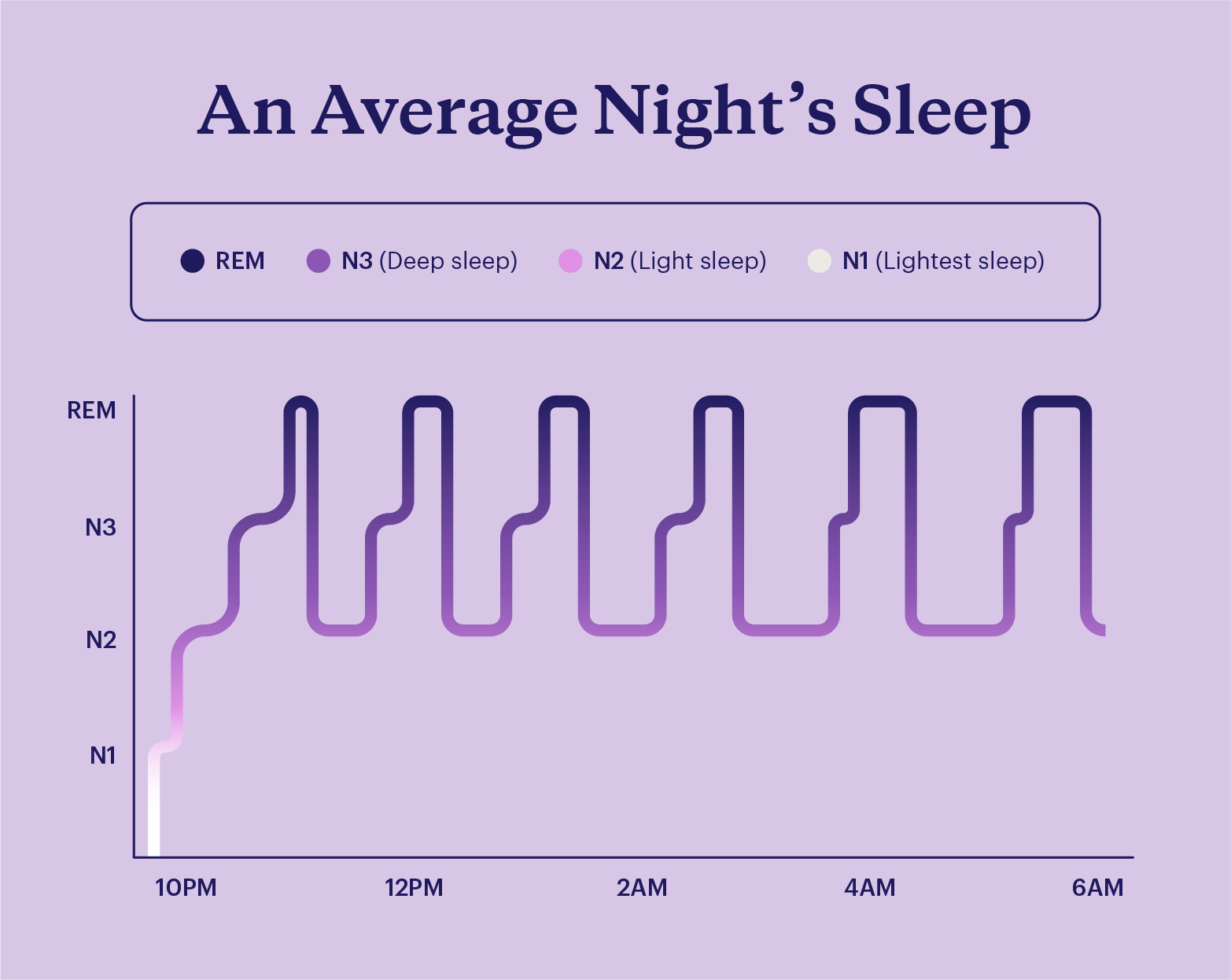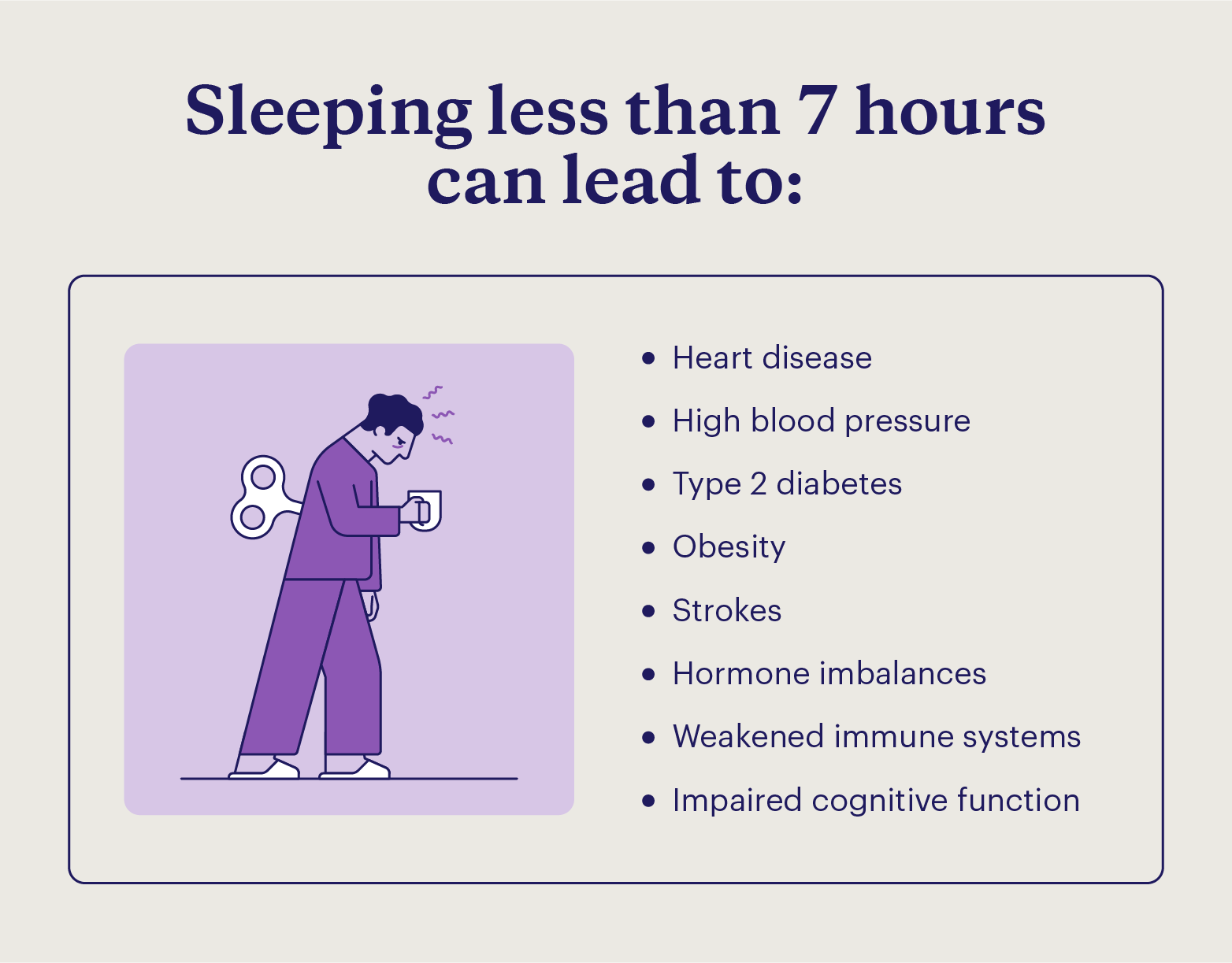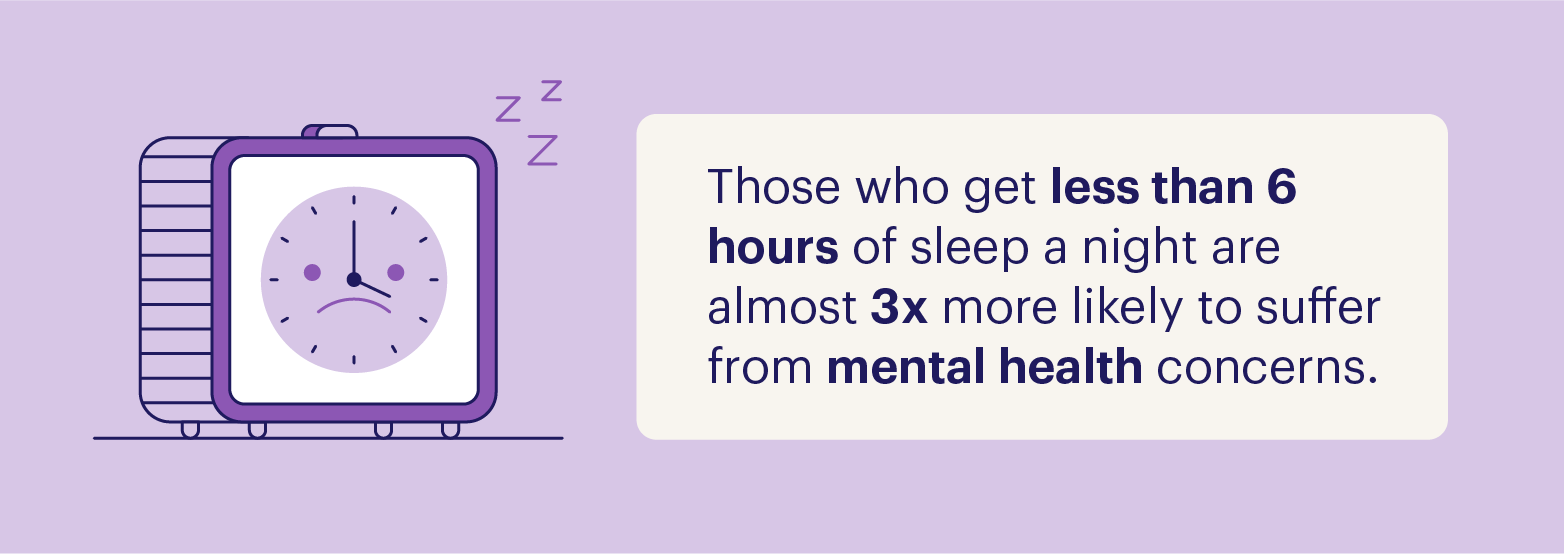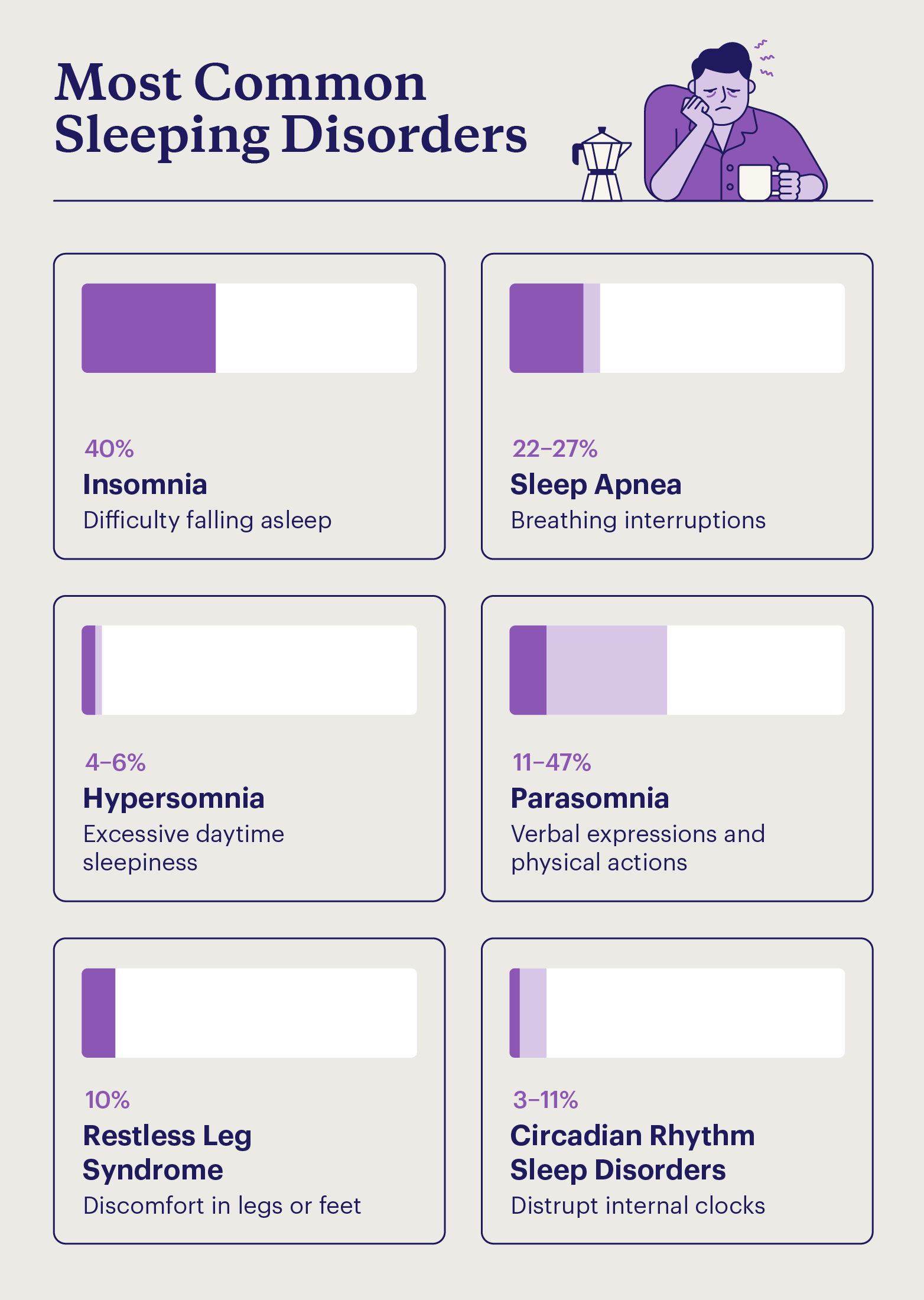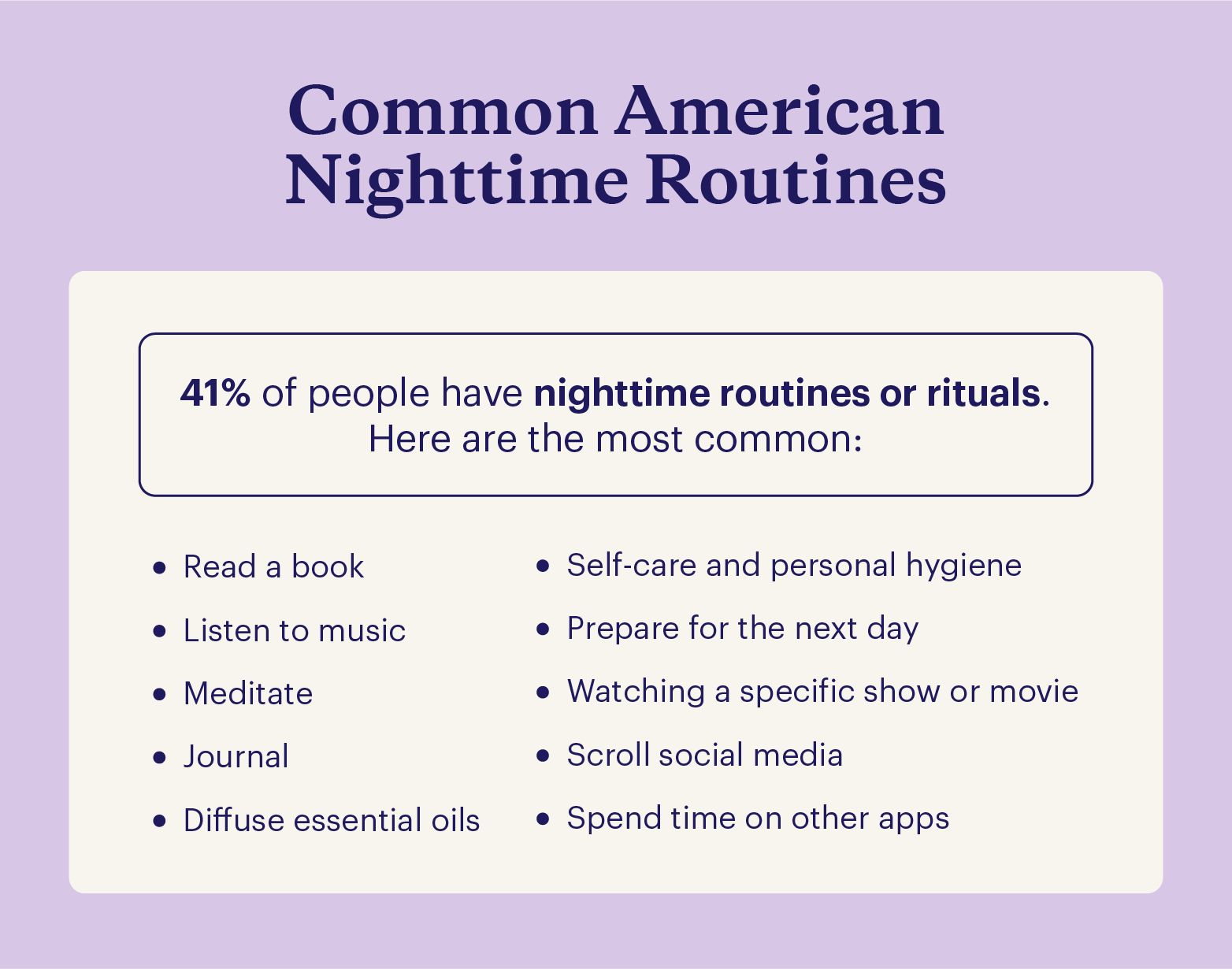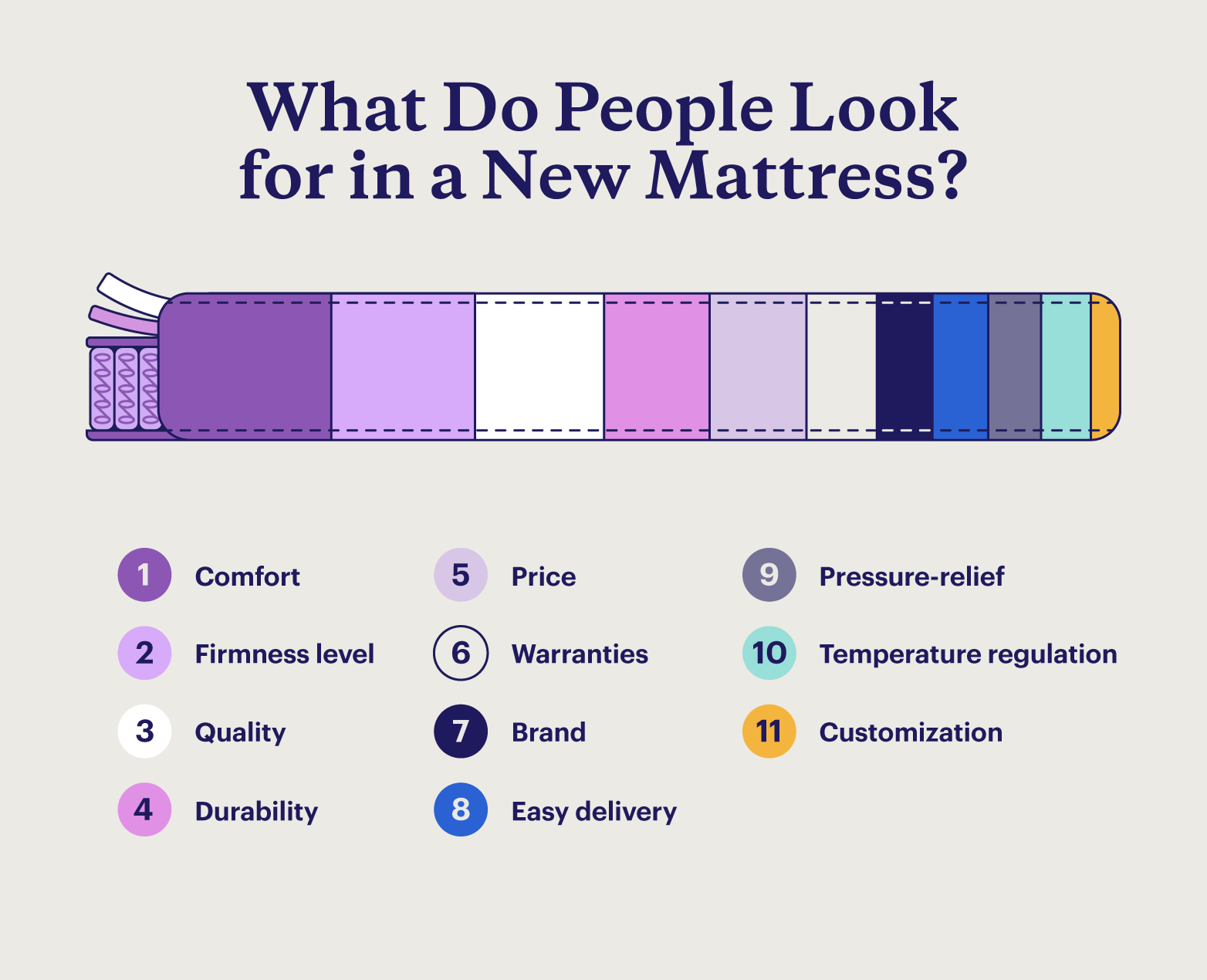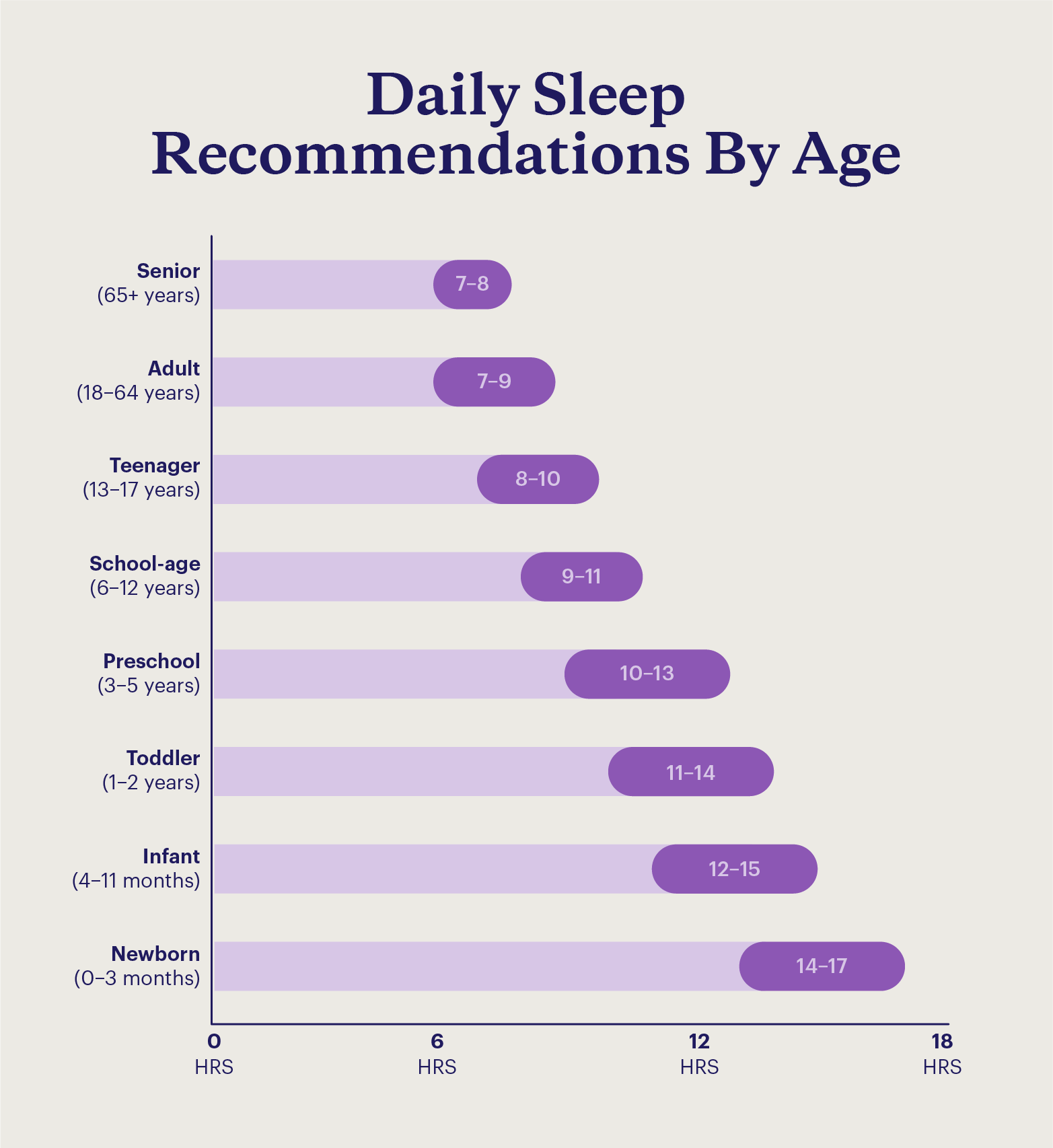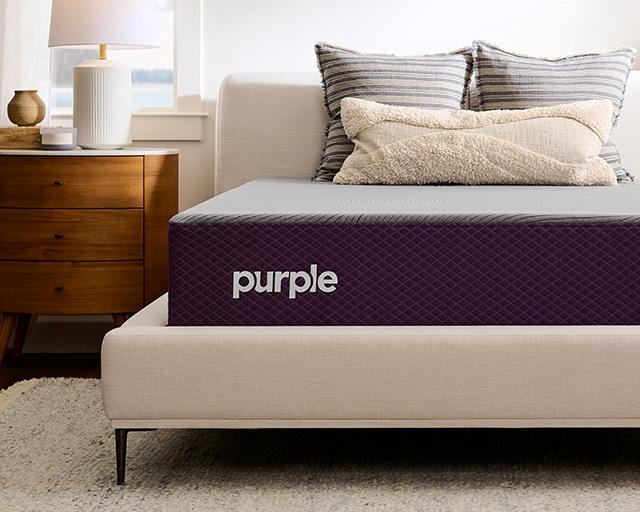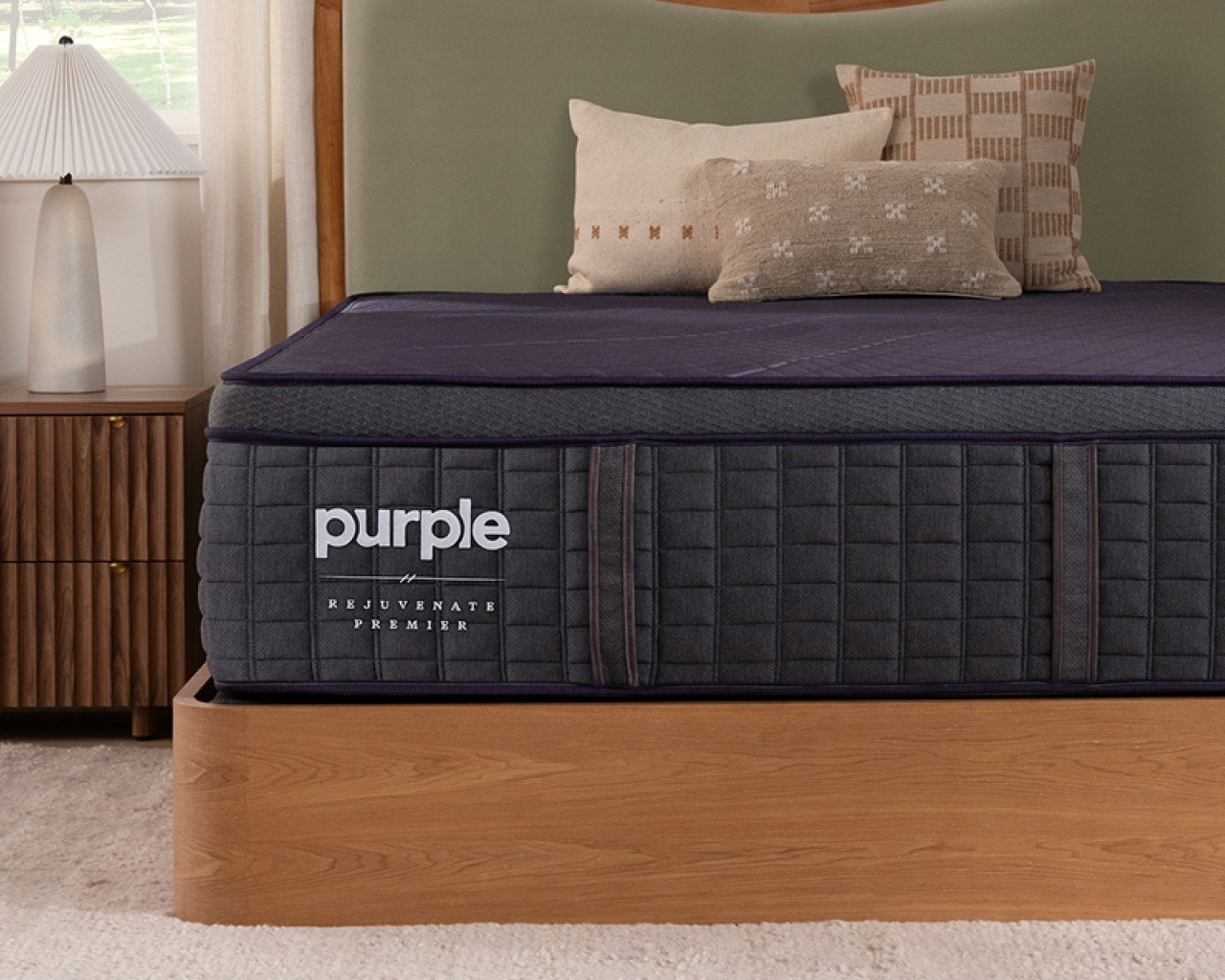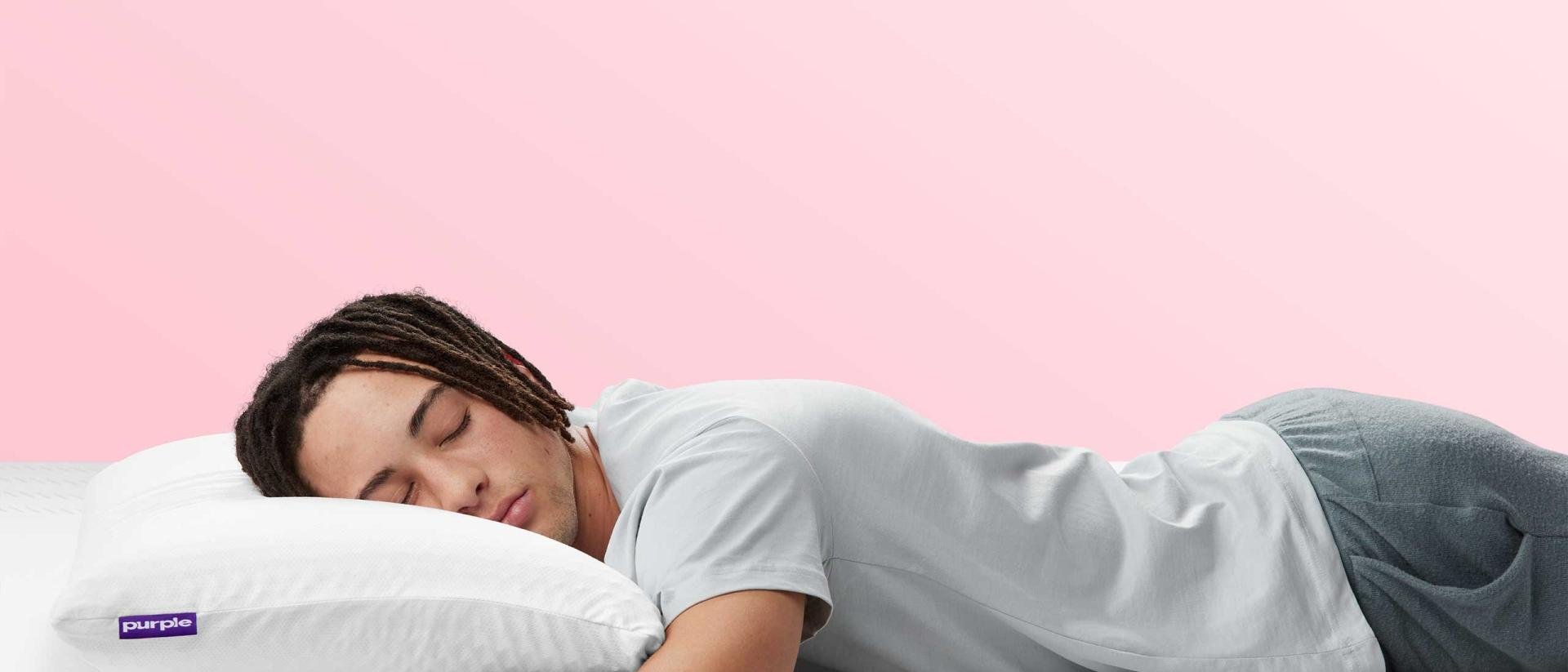
82 Refreshing Statistics + Facts About Sleep [2025]
A good night’s rest isn’t as common as you might think. In fact, 1 in 3 U.S. adults don’t get enough sleep, despite knowing proper rest is essential for proper cognitive function and maintenance of physical health.1
Facts about sleep show that insufficient rest impacts people of all ages, from high school students to seniors. The prevalence of sleep disorders is far-reaching, with a myriad of factors leading to a lack of sleep, even when your cozy mattress is calling your name.
In this post, we’ve sourced a list of the most interesting facts about sleep from leaders in the sleep industry, including proprietary data from Purple, sleep health professionals, educators, and more.
Read on to learn popular sleep statistics, how sleep works, and routines that improve sleep quality.
Fun Facts About Sleep
1. About one-third of Americans report “poor” or “fair” sleep from the previous night. That’s almost 84 million people. The remaining sleepers are fairly split in sleep quality — one-third report “very good” or “excellent,” and one-third report “good” sleep.2
2. Women sleep more than men but experience more difficulty falling asleep.3
3. New Zealand is the sleepiest nation, with sleepers spending seven hours and 27 minutes in bed a night, on average. The U.S. ranks 16 with an average of seven hours and six minutes of nighttime sleep.4
4. India reports the best sleep satisfaction, with 67% of adults either somewhat or completely happy with their sleep quality.5
5. Humans have an innate, genetically determined circadian rhythm that naturally determines when people feel sleepy or alert. Experts have classified four chronotypes that group those with similar circadian rhythms:
- Dolphins are erratic sleepers with unpredictable schedules. They account for about 10% of the population.
- Lions are early birds who wake up before the sun in the morning and go to bed early. They comprise about 20% of the population.
- Bears follow the sun for rising and sleeping. They account for about 55% of the population.
- Wolves are night owls who wake later in the morning and stay up late. They comprise about 15% of the population.6
6. Side sleeping is the most popular position (54.1%), followed by back sleeping (37.5%) and stomach sleeping (7.3%).7
7. Koalas are the world’s sleepiest animal. They spend most of their time snoozing, up to 22 hours a day.8
8. Octopuses change skin colors and texture during their active sleep stage.9
9. There are four stages of sleep: Stage one (N1 or awake), stage two (N2 or light), stage three (N3 or deep), and rapid eye movement (REM) sleep. Stages one through three are non-rapid eye movement phases (NREM).10
10. Typically, sleepers experience four to six complete sleep cycles during slumber in this order: N1, N2, N3, N2, REM. A complete cycle lasts approximately 90 minutes.10
11. Stage two of sleep lasts the longest, at around 25 minutes in the first cycle and extends with each repeated cycle, totaling about 45% of total sleep. Stage three and REM sleep account for about 25% of total sleep.10
12. Body temperature drops about 1 to 2 degrees Fahrenheit while asleep, which researchers think may help us experience deeper sleep more readily.11
Sleep Health Facts
13. Poor sleep can lead to many health issues, including an increased risk for obesity, type 2 diabetes, heart disease, high blood pressure, stroke, declining mental health, and early death.12
14. Inadequate sleep can negatively impact cognitive performance, particularly in attention spans, emotional capacities, judgment, and reaction times.13
15. Poor sleep quality and sleep deprivation are linked to elevated blood pressure, increased heart rate, and inflammation, all of which increase the risk of cardiovascular disease.14
16. Sleep deprivation can lead to various hormone imbalances, including cortisol, insulin, ghrelin, leptin, melatonin, serotonin, dopamine, thyroid, and sex hormones.15
17. Chronic sleep deprivation can weaken the immune system by hindering cytokine production, which helps manage inflammation in the body.16
18. It takes just one night of poor sleep to have an adverse effect, including a bad mood, a lack of productivity, or an increased risk of being in a motor vehicle accident.12
19. Adult drivers who either snore or sleep six or fewer hours per day reported falling asleep at the wheel more often. In 2020, 633 deaths were attributed to drowsy driving, but these numbers could total 6,000 or more.17
20. Researchers believe an extra 60 to 90 minutes of sleep can improve one’s overall health and mental well-being.18
Sleep and Mental Health Facts
Sleep and mental health are intimately connected, with daily stressors generally being credited for most instances of sleep deprivation and the development of sleep disorders. That said, their relationship is more cyclical than causal.
21. Oversleeping or undersleeping can result from underlying mental health issues, but a lack of sleep can also exacerbate an individual’s depression or anxiety.19
22. Individuals who sleep less than six hours a night on average are almost three times more likely to suffer from mental health concerns.20
23. As many as 90% of individuals report sleep disturbances as a symptom of depression. The most common struggles relate to insomnia, excessive fatigue, and sleep deprivation.21
24. Many otherwise healthy individuals who experience a poor night’s sleep report increased anxiety the following day.19
25. Roughly 70% of those with PTSD experience insomnia symptoms. This is largely due to a fear of sleep (nightmares) and often coincides with sleep apnea.22
26. One study found that 43% of adults often feel too stressed to sleep, causing them to lie awake unable to fall asleep at night.23
Sleep Disorder Facts
Sleep disorders are medical conditions that interfere with a person's ability to get sufficient sleep. Sleep disorders are usually uncontrollable and need to be treated by a medical professional.
Sleep statistics show that these disorders are increasingly common in the United States and contribute to the large number of adults who aren’t getting proper sleep.
27. An estimated 70 million Americans currently experience at least one sleep disorder.24
28. Over 80 sleep disorders exist but the most common are circadian rhythm sleep disorders (like shift work sleep disorder), insomnia, hypersomnia (like narcolepsy), restless leg syndrome, sleep apnea, parasomnias (like sleepwalking and sleep eating), and night terrors.25
29. Narcolepsy is a relatively rare sleep disorder that affects 44.3 in 100,000 people in the United States. People with this condition experience overwhelming daytime sleepiness and "sleep attacks'' during the day.26
30. There are two types of narcolepsy: NT1 and NT2. Narcolepsy cases are often sporadic or due to a medical condition. However, NT1 can be hereditary for a small percentage of individuals.27
31. 40% of women and roughly 57% of men snore while sleeping. However, the prevalence could be greater as snoring can go unnoticed by a sleeper or their sleeping partner.28
32. Nearly 1 billion people have obstructive sleep apnea (OSA) worldwide. OSA happens when the muscles supporting the tissues within a person's airway relax, narrowing and temporarily obstructing breathing.29
33. While OSA is more common in men, the difference is slight: 27.3% of men and 22.5% of women around the globe have OSA. The gap also closes as women age.30
34. Central sleep apnea (CSA) is much less prevalent. Only 1.7% of middle-aged adults and 12.1% of older adults suffer from CSA. A person has central sleep apnea when their breathing starts and stops several times while sleeping. This is because their brains don't send the correct signals to the rest of their bodies.31
35. Nearly one-half of people talk in their sleep.31
36. 11% of adults sleepwalk, and 7% have either sustained or witnessed an injury while sleepwalking.31
37. Getting up more than once to use the bathroom is called nocturia, which affects roughly one-third of adults over the age of 30.33
Sleep Deprivation Statistics
Sleep deprivation is the condition of not sleeping the age-based recommended amount of hours each night due to one’s lifestyle. Facts about sleep deprivation show that chronic short sleep durations (or the beginnings of insomnia) can negatively impact both physical and mental health.
38. Most American adults aren’t getting the proper amount of sleep per night. Only one-third of Americans sleep between seven and nine hours on average a night.2
39. The number of adults who aren’t getting enough sleep hasn’t changed much in the past seven years.34
40. Females are more likely than males to experience insufficient sleep and insomnia.35
41. Nearly one-half of college students report fatigue at least five times a week.36
42. Over one-third of American children and teens, both male and female, experience short sleep durations. This is consistent across all age ranges, from 1 year to 17 years.37
43. About 40% of people with insomnia symptoms tend to be affected by a mental health disorder.38
44. Adults who report short sleep durations and/or interrupted sleep also experience a 31% reduction in positive moods and an increase in feelings of depression the following day.39, 21
Sleep Hygiene Facts
Sleep hygiene refers to all the habits and choices people make surrounding sleep. This can include bedtimes, nighttime routines, methods to fall asleep, and more. Good sleep hygiene is characterized by routines that support quality sleep, while bad hygiene usually lacks structure and regularity. Below are some facts about sleep hygiene to guide you to better routines and sleep quality.
45. 41% of Americans have a consistent bedtime ritual. Some read a book, journal, or watch television while others scroll their phones or create to-do lists for the next day.40
46. More than half (58%) of adults scroll on smartphones or tablets, watch television, or look at other screens as part of their nightly routine within the hour leading up to sleep. These individuals experience more frequent sleep problems, as artificial light disrupts sleep.41
47. On average, people spend 26 minutes a day on their nighttime routines.42
48. Gen Z prioritizes sleep more than other generations. They are more likely to skip a nighttime routine, like forgetting to brush their teeth (53%) or change into pajamas (47%).42
49. Moving around while sleeping and stealing covers are the top sleep disruptions for those who share a bed with a partner. Almost half of these individuals would be willing to consider sleeping in separate beds for better sleep.43
50. 15% of Americans use sleep trackers, with women 50% more likely to use them than men. Almost half of those who use sleep trackers influence positive sleep habits.44, 45
51. Sleep tracking apps were the second most popular health-related app purchased in 2022, with 34% of those in a recent survey having purchased them.46
52. 18.4% of adults use sleep medications, with women almost twice as likely to take them to fall or stay asleep.47
53. A majority of people (80%) who use prescription sleep medications experience side effects that impact the following day. Specifically, they report instances of oversleeping, general grogginess, or having trouble concentrating for hours after they wake up.48
54. Melatonin supplements are often used to promote sleep. One research study showed that participants fell asleep on average seven minutes faster and slept about eight minutes longer.49
55. A recent study found that melatonin supplements may contain between -83% and +478% of their listed melatonin content, as they are not FDA-regulated.49
56. Research indicates frequent alcohol consumption decreases sleep quality by 40%. Those who drink several times a week report longer times to fall asleep, less sleep overall, and increased wakings.50
57. Caffeine has a half-life of five hours in healthy adults, meaning that roughly half of all consumed caffeine will be used up by the body in five hours. When consumed too close to bedtime, it can lead to sleep disruptions.51
Dream Statistics
58. Dreams occur throughout all the sleep cycles but are typically most vivid during the REM stage.52
59. Most dreams (95%) are forgotten nearly immediately after waking up.53
60. Blind individuals still experience visual dreams, even if they’ve been blind their entire lives.54
61. Most people dream in colors of varying vividness and only 12% of people report dreaming in black and white. It’s more common for older generations to report dreaming in black and white. One theory to explain this is childhood exposure to black-and-white television.55
62. It’s hard to know how long people spend dreaming, though it’s thought that it’s about two hours of dreams each night. That’s over 700 hours of dreaming a year.52
63. The dream recall rates change throughout one’s lifespan. Dream recall is relatively poor as a child, peaks into adulthood, and then diminishes around 60 years old.56
64. Researchers have many theories on what dreams mean, but many agree that we dream to process events and emotions in our daily lives.57
Sleep Environment Facts
Bedroom environments and nighttime routines help set the mood for sleep. Let’s take a deeper look at some facts about sleep environments — from mattress and bedding preferences to the sounds that lull you to sleep.
65. Top attributes when choosing a mattress by Purple include:
- Comfort (59%)
- Firmness level (49%)
- Mattress quality (44%)
- Durability (36%)
- Price (33%)
- Warranties (24%).
66. The most common reasons consumers purchase a new Purple mattress come down to the following issues with a previous mattress:
- Age/too old (41%)
- Wear (32%)
- Uncomfortable (31%)
- Unsatisfied with firmness (25%)
- Wanting to try different mattress materials or technology (23%).
67. Most individuals spend between two weeks and a month researching mattresses before purchasing a Purple mattress.
68. As the most common bed size found in homes, queen-sized mattresses and bed frames outrank king-sized beds in popularity.58
69. Nearly one-third of Americans prefer to sleep without a top sheet, with young adults and seniors most likely to forgo a top sheet.59
70. Most adults (31%) rest their heads on two pillows at night, with four pillows coming in at a close second (27%). Less than 3% sleep with no pillow at all.59
71. Comforters are the most common blanket of choice for sleepers. Only 11% of adults opt for a duvet instead.59
72. 52% of adults set background sounds to sleep. Most prefer music or nature sounds, followed by fans, televisions, and white noise.60
Methodology:
For the facts about sleep environments above, we conducted a survey asking recent Purple customers and those intending to purchase soon to identify important features and attributes when considering a new mattress. We also wanted to know their reasoning for purchasing a new mattress. Although relative, results are not generalized for the entire mattress market. Percentages reflect the number of respondents that selected a specific feature or reason when allowed to select multiple answers.
Sleep Facts for Students and Children
Sleep in children can be unpredictable, but it’s just as important for children to meet the recommended amounts of rest needed for development. Encouraging the significance of sleep hygiene and routines encourages children to make healthier sleep decisions later in life.
73. Newborns and babies up to 1 year old need roughly 14 to 17 hours of sleep per day between naps and shorter nighttime sleeping sessions.61
74. Young children between ages 1 and 4 require 10 to 14 hours of sleep per night.61
75. Older children from ages 5 to 12 need nine to 12 hours of sleep.61
76. Teens up to 17 years old require eight to 10 hours of sleep per night.61
77. Almost 75% of high school students experience sleep deprivation and sleep less than eight hours a night. Over 40% report six hours or less of sleep on average a night.62
78. About 70% of children with attention-deficit/hyperactivity disorder (ADHD) suffer from disordered sleeping — most commonly with insomnia and increased daytime sleepiness.63
79. Between 30% and 53% of autistic children experience sleep disorders, particularly insomnia and delayed sleep-wake phase disorder. These sleep disorders can heighten autism symptoms.63
80. About 20% of children experience a sleepwalking episode. Children are more likely to sleepwalk if their parents did.64
81. It isn’t until around 7 years old that we begin to see ourselves in dreams and dream with narrative structure and emotion. Up until then, dreams often show an absence of people, objects, and events and pair with low recall rates.65
82. Teenagers’ circadian rhythms naturally delay bedtimes and wake times, which can interfere with their education. Early school start times — before 8 a.m. — can cause social jet lag, which occurs when an individual’s activities disrupt their sleep schedule. Later school start times are associated with overall better developmental outcomes, improved energy levels, and less negative moods.66
Why Is Sleep Important?
Rejuvenating rest is vital for a happy and healthy life, but statistics and facts about sleep show that many people struggle with getting the proper amount each night. This can be attributed to stress, mental health issues, or sleep disorders that may be difficult to manage on your own.
The primary way to quickly make a difference in your sleep is to ensure you have the proper mattress for your sleep habits. While job responsibilities and the chaos of life will always ensue, a mattress and your favorite cooling pillow that softens and supports exactly where you need it to while keeping cool throughout the night is the secret to making sleep come easier.
Purple’s GelFlex® Grid is a proprietary sleep innovation that instantly adapts to your shape for a cozy, cradling comfort — with the proper alignment. Use our Mattress Finder for a personalized list of recommendations based on your specific sleep style or view our full mattress selection and make your way toward the rest you deserve!

